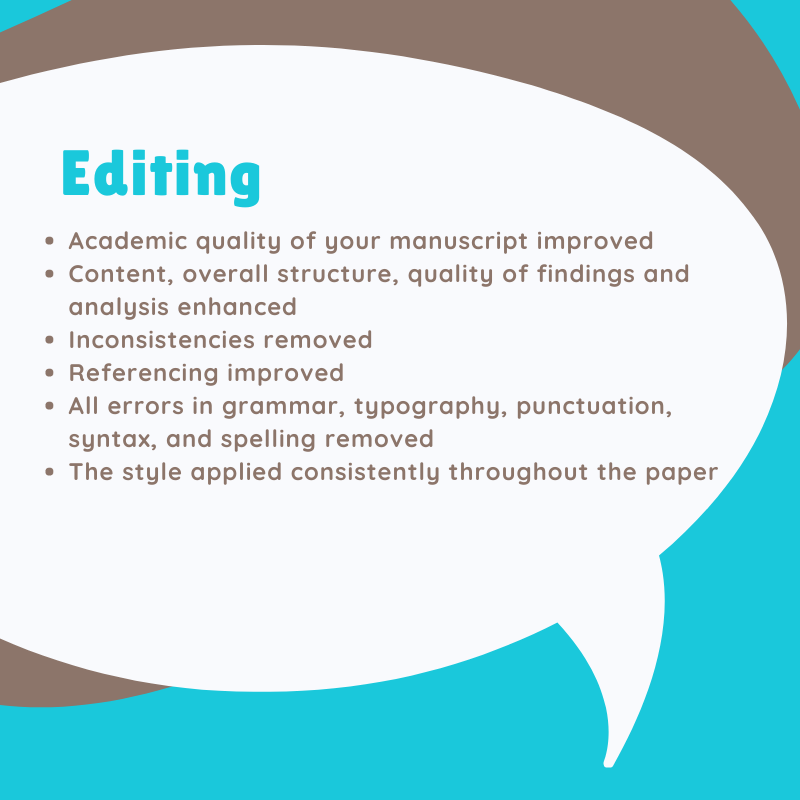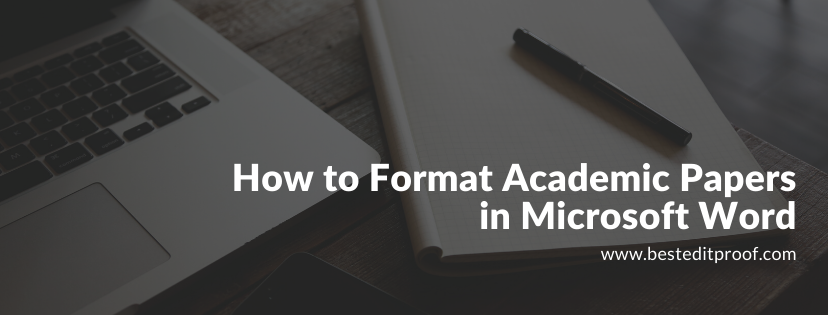Whether it is an academic essay or any other thesis paper, all the papers are directly or indirectly associated with one’s future. Therefore, making mistakes here means compromising with the future. However, students are fond of making some habitual errors while composing an academic paper. Let’s learn those mistakes and make sure not to repeat them in your turn.

This article discusses the top 5 mistakes students make in academic writing. To give you an opportunity to practice proofreading, we have left a few spelling, punctuation, or grammatical errors in the text. See if you can spot them! If you spot the errors correctly, you will be entitled to a 10% discount.
Writing an academic paper requires just more than bookish knowledge. It requires deep research, expertise in formatting and referencing, formal writing style, and much more. As we are humans, it is very normal for us to make mistakes. However, if we keep making mistakes, it is called ignorance. Especially, a student can’t afford silly mistakes in academic studies.
Whether it is an academic essay or any other thesis work, all the papers are directly or indirectly associated with one’s future. Therefore, making mistakes here means compromising with the future. However, students are fond of making some habitual errors while composing an academic paper. Let’s learn those mistakes and make sure not to repeat them in your turn.
There is a long list of silly mistakes, including lack of proper research, informal tone, long sentences, unclear statements, too much use of confusing words, stereotypes and biased language, failure in formatting and referencing, plagiarism, not seeking professional assistance for editing and proofreading services, and many more. However, we have summed up all the mistakes and divided them into five main sections to give students a clear idea about the errors and how they can avoid them.
Research is the backbone of any successful academic paper. Many students knowingly or unknowingly avoid this part. Improper or inadequate research leads to the paper involving wrong information and an unclear idea about the subject. There are mainly two reasons behind inadequate research. First, some students are ignorant about research. Second, many students want to research, but they fail to identify proper resources.
If you belong to the second category, we suggest you visit the library regularly and explore different books on your topic. Especially, when you are searching for online resources, please be specific about the online resources you use. Some trusted online academic databases are Google Scholar, CORE, ScienceOpen. Exploring the variety of books and different reliable data sources helps you build your unique idea. You may find the following articles helpful:
· 10 Free Online Journal and Research Databases for Researchers
· Top 5 Free Online Journal and Research Databases for Academics
Using lengthy and fragmented sentences doesn’t help you score extra marks. Rather, it affects the spirit of the term ‘‘academic.’’ At the same time, failing to keep a formal tone while writing long sentences is not accepted. An academic paper demands formality in simplicity.
Suppose you are reading something, and the description leaves you confused to an extent. Would you continue reading it? Of course not! In addition to this, using too many long and complex sentences hampers the readability of any academic paper.
Always try blending different sentences styles but make sure that they are readable. Along with that, please restrict yourself to using the first and second person. Academic writing never entertains an informal tone.
· DOs and DON'Ts: Tips to Improve Your Academic Writing
· 6 Bad Habits to Avoid in Academic Writing
· Four Common Punctuation Errors in Academic Essays
Academic writing follows a specific pattern and referencing style. Your hard work becomes useless if you allow errors in this section. Understanding the university guidelines and academic patterns (e.g., MLA, APA) and following the entire pattern while writing require a lot of patience. After that, inserting error-free references following a similar pattern seems confusing to many students. As a result, they make mistakes here and weaken the quality of the entire paper.
If you don’t want to make any mistakes in this part and score high, you need to follow the publication guidelines strictly and write according to it following the specific pattern. However, most of the time, students consult professional proofreading and editing services to avoid any mistakes in this part.

Plagiarizing content refers to unethical deeds in academics. Borrowing the same content from other websites and pasting it to your academic paper is not allowed at all. However, we understand that students are not always responsible for this. Modern online plagiarism checker tools read the sentences and follow every sequence of your sentences to trace the plagiarism. Slight plagiarism in your academic paper is enough to hamper the chances of scoring good grades. Moreover, it can welcome the worst consequences for you.
· How to Choose the Right Plagiarism Checker for Your Academic Works
· What is Plagiarism | How to Avoid It
· 5 Practical Ways to Avoid Plagiarism
We have previously mentioned that it is common for humans to make mistakes. In academic writing, editing and proofreading is essential to ensure the credibility of the content. There can be several mistakes related to grammar, punctuation, syntax, sentence construction, and other minor errors. Consulting an expert for amending such errors doesn’t only save your time but also ensures consistency and error-free writing in your academic paper.
Moreover, if the paper is traced with some major mistakes, an editor plays an exceptional role in editing the part and rewrite it for you. Where proofreading deals with grammar, spelling, punctuation, and other minor errors, editing deals with the analysis and core amendments, including formatting, referencing, and many more. Irrespective of native or non-native speakers, it is a smart decision to seek assistance from experts.
· How Much Do Proofreading and Editing Cost?
· What is Proofreading? Difference Between Proofreading and Editing
· 8 Things to Consider Before Hiring Online Editing or Proofreading Services
· Guide to Editing and Proofreading Before Submitting a Manuscript
· How to Find a Reliable Proofreading Service: A Brief Guide

First things first. You need to be very careful while researching and writing your academic paper. After completion of writing, consider consulting an expert such as Best Edit & Proof for the final check and to amend any existing mistakes.
Best Edit & Proof expert editors and proofreaders focus on offering manuscripts with proper tone, content, and style of academic writing, and also provide an upscale editing and proofreading service for you. If you consider our pieces of advice, you will witness a notable increase in the chance for your research manuscript to be accepted by the publishers. We work together as an academic writing style guide by bestowing subject-area editing and proofreading around several categorized writing styles. With the group of our expert editors, you will always find us all set to help you identify the tone and style that your manuscript needs to get a nod from the publishers.
You can also avail of our assistance if you are looking for editors who can format your manuscript, or just check on the particular styles for the formatting task as per the guidelines provided to you, e.g., APA, MLA, or Chicago/Turabian styles. Best Edit & Proof editors and proofreaders provide all sorts of academic writing help, including editing and proofreading services, using our user-friendly website, and a streamlined ordering process.
Visit our order page if you want our subject-area editors or language experts to work on your manuscript to improve its tone and style and give it a perfect academic tone and style through proper editing and proofreading. The process of submitting a paper is very easy and quick. Click here to find out how it works.
Our pricing is based on the type of service you avail of here, be it editing or proofreading. We charge on the basis of the word count of your manuscript that you submit for editing and proofreading and the turnaround time it takes to get it done. If you want to get an instant price quote for your project, copy and paste your document or enter your word count into our pricing calculator.
Contact us to get support with academic editing and proofreading. We have a 24/7 active live chat mode to offer you direct support along with qualified editors to refine and furbish your manuscript.
Follow us on Twitter, LinkedIn, Facebook, Instagram, and Medium.
For more posts, click here.
How to Determine Variability in a Dataset
14.10.2023
How to Determine Central Tendency
19.02.2023
How to Specify Study Variables in Research Papers?
14.01.2023
Population vs Sample | Sampling Methods for a Dissertation
14.01.2023
How to Ensure the Quality of Academic Writing in a Thesis and Dissertation?
04.12.2022
How to Avoid Anthropomorphism in Your Dissertation?
04.11.2022
How to Write a Research Methodology Section for a Dissertation and Thesis
07.08.2022
How to Write a Theoretical Framework for a Dissertation and Thesis?
05.08.2022
How to Write Literature Review for a Dissertation and Thesis
02.08.2022
How to Write a Dissertation and Thesis Introduction
31.07.2022

The writer is expected to be very selective with the style and approach of writing custom-made. Here in this article, the primary and essential elements to be taken under consideration while developing engaging content will be illustrated. This article discusses 9 basic principles for effective content writing.
Continue Reading
One of the major struggles that English speakers and writers suffer from is the different variants of American English and British English. Mistakes regarding these variants are very common that even experts get confused at times. Therefore, if you are struggling with these differences, don’t worry — you are not alone. Now, what you can do is gradually learn more about the two English variants. We assembled a comprehensive guide that highlights the basic differences between American and British English.
Continue Reading
This reference guide explains how to format your academic documents in Microsoft Word 2022, giving you the fundamental rules for formatting your academic papers as described in most guidelines, such as MLA and APA styles. The rules discussed in this guide apply to most of the academic papers you will submit as college assignments or articles for journals.
Continue Reading
A narrative essay is, to an extent, an anomaly in academic writing. Unlike an expository essay, it does not dissuade academic writers from exercising their creative faculties. Nor does it require them to conduct extensive research and be strictly objective in their writing. However, narrative pieces still require academic writers to abide by the fundamental linguistic requirements of academic writing, such as excluding any instances of slang and other “informal” linguistic elements. This article expounds upon the atypical nature of a narrative essay and divulges the steps to write one.
Continue Reading
Blog writing is an effective way to share your knowledge and ideas with your target group. Here you can dive deep and talk about your favorite topics, showcase your expertise and attract an audience or readers interested in your work. However, creating a perfect blog post can sometimes get overwhelming – from choosing the right topics to selecting the proper format for your articles to picking images that generate interest and engagement, it's no less than a task.
Continue Reading
A thesis statement is the main academic argument of the thesis that distills the central idea of the study informing the readers about your stance on your thesis topic and is therefore an integral part of writing the thesis. When writing a thesis statement, there are several contentions regarding the right approach. And understandably so, for there are no definite writing rules. But there certainly are writing best practices. In this article, we will look at some of these best practices and how you can leverage them to write a formidable thesis statement. But prior to that, let’s understand what a thesis statement is.
Continue Reading
The first chapter of your thesis or dissertation includes the introduction. You should provide the reader with a solid start. Next is staging your research with an apparent focus, objective, and direction.
Continue Reading